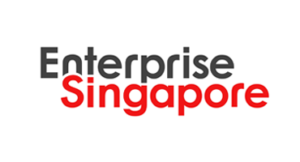How To Set Up Singapore Representative Office As A Foreign Entity?
A Representative Office (RO) is a temporary administrative office that serves as a point-of-contact to organise and execute non-commercial activities, for the foreign company or entity. In this article, we talk about the benefits steps to set up a Singapore Representative Office (RO).
The RO does not have any legal status and is not a separate legal entity from the parent company in the eyes of Singapore courts.
Benefits of setting up an RO in Singapore

Whenever a foreign company plans to come into Singapore, the manner of entry is usually determined by its commercial objectives.
The RO helps the foreign company to find out more about potential business opportunities in Singapore or the Asia-Pacific region.
The foreign company does not need to commit to any financial outlay yet. It can also conduct certain non-commercial activities to determine its own future business opportunities in Singapore.
How can a foreign entity decide whether to set up a branch office, subsidiary or re-domiciliation instead of an RO?
An RO is only allowed to operate in Singapore for not more than 3 years, after which should the foreign entity can decide to begin its operations by setting up a subsidiary, a branch office or re-domiciliation here in Singapore.
Below we explain the differences between the four options:
- A branch office is basically an extension of the foreign parent company. They are not separate legal entities. Different from an RO, branch offices can conduct business activities but can only conduct the same type of activities as the parent company. The foreign parent company is a non-resident for planning to achieve market share in the short term.
- A subsidiary is a company incorporated in Singapore that is owned or controlled by its parent company, meaning the parent company holds the majority of shares of the subsidiary. Different from an RO, subsidiaries can conduct all types of commercial activities, even if it is of a different type from their parent companies. This is the best option if foreign companies are planning to operate in Singapore for the long term.
- Redomiciliation is basically a procedure where the foreign company will transfer its registration from its country of incorporation to Singapore. This means that effectively the foreign company would become a Singapore incorporated company. This option is for any foreign company that decides their future prospects would be for the better if it relocates here instead.
Requirements
Scope of approved activities of an RO
Like we mentioned earlier, an RO is just a temporary administrative office with no official legal standing, it is not allowed to engage in commercial or profit-yielding activities. So an RO cannot sign any contracts, issue Letters of Credit (LOC), negotiations or any forms of trading.
ROs are only allowed to carry out activities such as market research and feasibility studies. For example, the RO can take part in trade conventions, collect information about potential clients and target markets, research market demand and handle inquiries.
If the RO fails to work within these criteria, it can be de-registered.
Must the RO be operating under the same name?
The RO has to conduct its activities under the same company name as the foreign company, except that it must include the words or term “Representative Office”. It must be reflected on the signboard, name cards of staff and all other marketing materials.
Criteria for application
A foreign entity that plans to set up an RO in Singapore:
- Must be incorporated for more than 3 years; and
- Have achieved sales revenue of no lesser than USD $250,000.
Besides the above, an RO must appoint a Chief Representative Officer (CRO) who must relocate to Singapore from the foreign company’s head office and oversee all of the activities by the RO. And it can only employ a maximum of 4 employees as support staff.
How to set up a Singapore RO?
The foreign entity can engage a Singapore professional corporate secretarial firm to help with the setting up. Your corporate secretary can facilitate via online, or courier the physical documents over.
It is not necessary to send a representative to Singapore, from a foreign entity just for the setting up of the RO.
Application through the Monetary Authority of Singapore (MAS)

If the RO’s business activity is in the sector of finance, banking or insurance industry, it must be registered with MAS.
Before registering the RO, applicants should first contact the Banking Department at MAS to present their plans to MAS before they submit a formal application. The purpose is to ensure that the foreign company has a proper assessment of the chances of the proposed application.
The list of documents needed for the formal approval process with MAS are:
- A completed application form (can be found on MAS’ website);
- Original letter from the foreign country’s relevant authority showing the approval of the setting up of the office in Singapore;
- A certified true copy of the company’s constitution also known as Memorandum and Article of Association;
- Annual financial reports of the foreign entity for the past 2 years, balance sheet and profit and loss statements dated within 3 months before the application date; and
- Annual reports of the holding company who is controlling the bank account or beneficial owners with controlling interests for the most recent financial year (FY).
Application through Enterprise Singapore

As for ROs in other industries, the registration can be done with Enterprise Singapore instead. The documents required for approval are:
- A completed application form;
- A copy of the foreign company’s Certificate of Incorporation; and
- The parent company’s latest annual report and audited accounts (copies will be accepted)
For all non-English documents, an official English translation must be provided together with the application.
The processing fee for incorporating an RO and renewal of the RO per annum is SGD $200. This fee is non-refundable in the event of withdrawn or unsuccessful applications.
You can pay via:
- Cheques (crossed and payable to Enterprise Singapore);
- Credit cards (Visa or Master) via Enterprise Singapore online portal; or
- Bank Drafts (payable to Enterprise Singapore in Singapore currency/SGD).
How long does it take to register?

After submitting the application, it takes about 7 days for the authorities to issue a Letter of Approval (LOA), confirming the registration, subject to approval by the authorities. If they need additional documents or any further clarifications, the approval process can extend by 7 to 14 days.
What happens next?
What is the duration an RO can operate?
An RO will only be to operate for a period of not more than 3 years in Singapore. As such, the RO status must apply for renewal during this 3-year period annually.
The authorities will normally send a notice 2 months prior to the expiry date via post or email. If there is no response, they will proceed to de-register the RO.
After that, the foreign company will need to incorporate a branch office or subsidiary if it wishes to continue its business activities in Singapore.
Application of an Employment Pass (EP) for foreign staff

In order for a foreign staff (i.e the CRO, see above) to be able to work in Singapore, the foreign company must make an application for an EP.
The EP is basically a work visa that will allow foreign staff to work and live in Singapore. It is usually valid for 1-2 years and has to be renewed afterwards.
You need to provide the documents listed below for application:
- Copy of the approval letter by either MAS or Enterprise Singapore for the set up of an RO in Singapore; and
- A letter from the RO’s foreign entity stating:
- The reason and purpose of the application for EP
- The time period of the foreign staff’s assignment
- A guarantee for the repatriation and maintenance of the foreign staff while working and living in Singapore
For more information on the procedures of applying for an EP, please refer here.
Will the RO be liable to pay corporate tax?
The RO will not have any form of liability in corporate tax in Singapore because the RO is not allowed to even generate income.
Will the RO be able to open a corporate bank account?

The RO can open a corporate bank account in Singapore for the purpose of running its operations. This usually takes 14 working days.
Opening a corporate bank account may sometimes require a physical interview with the stakeholders to conduct the bank’s due diligence checks. These checks comprise a detailed appraisal of the purpose, background and finances of the foreign company’s business.
Under what situations will the RO need to de-register?

If the RO turns dormant, meaning it stops carrying out activities for a period of time, it needs to de-register.
ROs need to de-register once the foreign parent companies become dormant, meaning the foreign company does not have any more revenue or income within a financial period.
Contact Us
If you need help in setting up your company in Singapore or you have any questions, please do not hesitate to contact us.
Download the Telegram app and follow us for the latest updates: https://t.me/sgcompanyservices

